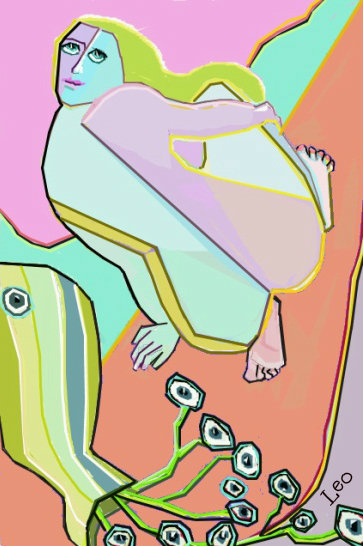"To live without faith, without a heritage to defend, without battling
constantly for truth,
is not to live, but to ´get along;´ we must never just ´get along.´"
The Wild One: Pier Giorgio Frassati
is not to live, but to ´get along;´ we must never just ´get along.´"
The Wild One: Pier Giorgio Frassati
Pope John Paul II's Homily From the Beatification Mass of Blessed Pier Giorgio Frassati
I didn't do you justice in the portrait I did of you today, but, I will try again. It's so hard to capture your beautiful smile and the far away look in your eyes. You are an inspiration to me. You died a death that was too cruel and too soon, from a disease that killed you in just one week. Polio filled me with terror when I was a young girl, and thanks to .Jonas Salk and Albert Sabin, most children and young adults today don't have to worry anymore about Polio.
Polio in the World Today World Health Organization
Early in the 20th century polio would become the world's most feared disease. The disease hit without warning, tended to strike white, affluent individuals, required long quarantine periods during which parents were separated from children: it was impossible to tell who would get the disease and who would be spared. The consequences of the disease left polio victims marked for life, leaving behind vivid images of wheelchair, crutches, leg braces, breathing devices, and deformed limbs. However, polio changed not only the lives of those who survived it, but also effected profound cultural changes: the emergence of grassroots fund-raising campaigns that would revolutionize medical philanthropy, the rise of rehabilitation therapy and, through campaigns for the social and civil rights of the disabled, polio survivors helped to spur the modern disability rights movement.Two vaccines are used throughout the world to combat polio. The first was developed by Jonas Salk, first tested in 1952, and announced to the world by Salk on April 12, 1955. The Salk vaccine, or inactivated poliovirus vaccine (IPV), consists of an injected dose of killed poliovirus. In 1954, the vaccine was tested for its ability to prevent polio; the field trials involving the Salk vaccine would grow to be the largest medical experiment in history. Immediately following licensing,vaccination campaigns were launched, by 1957, following mass immunizations promoted by the March of Dimes the annual number of polio cases in the United States would be dramatically reduced, from a peak of nearly 58,000 cases, to just 5,600 cases.
Eight years after Salk's success, Albert Sabin developed an oral polio vaccine (OPV) using live but weakened (attenuated) virus. Human trials of Sabin's vaccine began in 1957 and it was licensed in 1962. Following the development of oral polio vaccine, a second wave of mass immunizations would lead to a further decline in the number of cases: by 1961, only 161 cases were recorded in the United States. The last cases of paralytic poliomyelitis caused by endemic transmission of poliovirus in the United States were in 1979, when an outbreak occurred among the Amish in several Midwesterm states
List of Polio Survivors
Pier Giorgio with sister, Luciana
Luciana's Obituary from La StampaExcerpt:Luciana Frassati
La signora del secolo scorsoLuciana Frassati
The lady of the last centurySi è spenta nel sonno a Pollone all’età di 105 anniShe died in her sleep at the age of 105 years in PolloneÈ morta alle sette di ieri Luciana Frassati Gawronska. La signora, che aveva compiuto 105 anni il 18 agosto, si è spenta nel sonno nella sua casa di Pollone nei pressi di Biella. I funerali si svolgeranno domani, a Torino, con una cerimonia in Duomo. Luciana Frassati sarà sepolta a Pollone, nella tomba di famiglia, accanto al fratello, il beato Pier Giorgio.
Luciana Frassati Gawronska, having completed 105 years, died in her sleep at her home in Pollone near Biella at seven o'clock yesterday, August 18, 2007. The funeral will be held tomorrow in Turin at a ceremony in the Cathedral. Luciana Frassati will be buried in Pollone in the family tomb, next to the brother, Blessed Pier Giorgio.Luciana's Obituary from Frassati USA


































